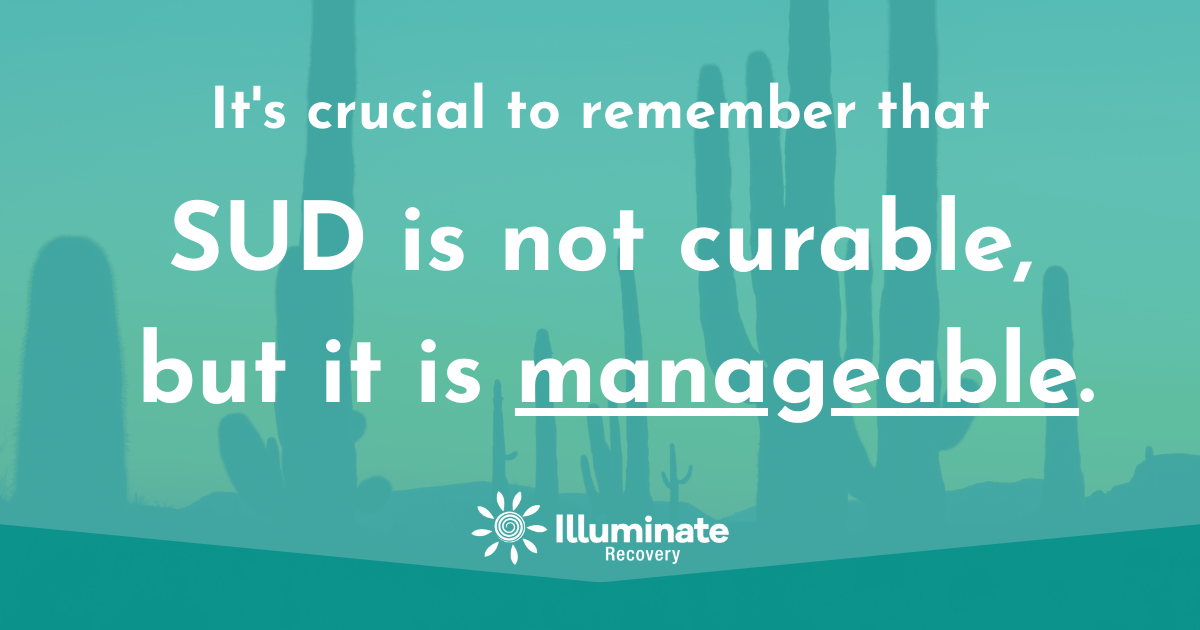Everyone has some idea of perfectionism, but for those recovering from substance use disorder (SUD), trying to achieve perfection could lead to a relapse.
Perfectionism and addiction recovery are actually tightly linked, which many people in recovery don’t realize until later. Today we’re exploring how rehab centers work with clients to suppress this idea of perfectionism and strive to help them create positive, fulfilling thoughts that continue throughout their lives.
Where Does Perfectionism Come From?
Perfectionism comes from an innate desire to be flawless. People striving for perfection are critical of their own behaviors and actions, and they set abnormally high standards that are often impossible to meet. The key to perfectionism, however, is that it often originates from a fear of not being good enough.

Many people experience negative thoughts such as “I’m not good enough” or “If I can’t do this, no one will care about me.” These thoughts are what lead some people to misuse medications or use illicit substances. There are also other reasons people may develop perfectionist-like tendencies, but they all reinforce the idea that if perfection isn’t reached, then the individual isn’t good enough for the world.
Social Status
Almost everyone looks to societal standards as the benchmark for their progress and development. If someone else is driving an expensive car or receives constant societal praise, you may think of yourself as unworthy or irrelevant compared to them. Social media has also aggravated this idea of perfectionism, as people use social media as a vanity outlet. Comparing yourself to what you see on social media can lead to feeling less than perfect.
Pressure for Excellency

College and high school students in America are constantly told they need to achieve at a high level to make it in life. Similarly, professionals can experience a high degree of pressure to perform. This constant pressure can do more harm than good, and people of all ages can begin to feel unworthy. When someone feels isolated from everyone else or feels inadequate compared to those around them, they may turn to substances to cope with these feelings.
Parental Practices
The way you’re raised can determine a lot about who you grow up to be. If your parents constantly put pressure on you to never make any mistakes or only achieve high-quality results, you may feel like a failure when you can’t meet their demands, and the effects can last well into adulthood. Parents may also feel like failures themselves when their children don’t turn out how they envisioned. However, parents and children need to understand that sometimes you have to make mistakes to learn.
The Link Between Perfectionism and Addiction Recovery
When people feel emotionally unstable, they may attempt to fall back on perfectionism as a way to achieve stability in their lives. However, if someone can’t achieve that, they may begin using substances to drown out that feeling of inadequacy. Similarly, many people take the difficult first step in seeking help, only to relapse after a short time, which can lead to feelings of failure and regret for not achieving perfection in recovery.
SUD
One of the biggest misconceptions about recovery is also the source of perfectionism in recovery centers.

Some people believe they must go into recovery with one goal – never using any substance ever again. They take on an all-or-nothing approach which prevents them from accepting any shortcomings along their journey. If they even think about using a substance, they may feel like they’ve failed or that they’ve wasted their time and effort in recovery. It’s crucial to remember that SUD is not curable, but it is manageable.
Guilt
Some people new to recovery may feel ashamed or guilty of their past actions. They may feel worse if they struggle to meet certain goals throughout recovery. It’s common for those in recovery to revert to using substances as a way to cope with their feelings of worthlessness.
Imperfection
Perfectionism arises when someone feels insecure about their own actions. When people continue to fear they won’t be perfect, they might turn to substances to help mitigate the negative emotions. Again, it’s important to remember that perfection is not the goal, but progress and hopefulness is.
Distress
Some people may have accepted defeat and turned to substances to get them through the day. They may have experienced horrible trauma in the past, or they’re constantly stressed from their family or work life. Some individuals may have a mental disorder that hasn’t been properly addressed. When people try to cope with their struggles by turning to substances, this is considered self-medication.
Isolation
Perfectionists typically refrain from asking for help, as they believe they should be able to handle everything already. When this persists, though, perfectionists may isolate themselves from everyone around them. Having a strong support system allows your recovery journey to become easier, but this can be challenging for those who have isolated themselves with their substances.
Emotion
People with substance use disorder are already experiencing changes in their brain’s chemistry. Studies have shown that using substances can alter your brain’s neurotransmitters, which can make refraining from substances incredibly difficult. These changes can alter emotions and aggravate already negative ways of thinking. People already feeling negative about themselves and using substances to cope may struggle because harmful substances can only worsen these thoughts.
Is Perfectionism Another Form of Addiction?
While it’s not an official form of addiction, perfectionism can be a harmful pattern of emotional and behavioral actions. If someone believes they must be perfect, they will consistently be chasing impossible goals — and they may not know how to stop this behavior or feel like they can’t stop. Even if their actions hurt others or themselves, they may continue to try to achieve perfectionism.
That’s why it’s so crucial to modify your thoughts as they apply to success in recovery. Alcoholics Anonymous (AA) abides by a statement that’s quite apt for recovery: progress, not perfection. The idea behind this statement is that you measure your success one day at a time and attempt to improve your life slowly. You’re not trying to get rid of your SUD. Instead, you’re learning to manage it. If you slip, you use healthy coping skills and practice the skills learned in treatment and 12-step meetings to make forward progress in your recovery journey.
Is Perfectionism Always Bad?
Perfectionism may be linked to substance use disorder, but that doesn’t mean it’s always bad. If someone is navigating life without feeling unworthy or less than others, there’s no harm in seeking success. An obsessive habit of trying to achieve perfection can be an issue, but in normal circumstances, as long as an individual is more focused on positive progress than being perfect, the pursuit of success can be a good thing.
How to Combat Perfectionism
Whether you’re considering going to a treatment center or have already begun your recovery, there are ways you can overcome SUD and perfectionism at the same time. The five steps of recovery are a great place to start, and there are also additional points to keep in mind throughout your journey.
Ask for Guidance
You don’t have to walk the path toward recovery alone, and it’s highly recommended that you don’t. Asking for help can be scary, as you may fear being judged or ignored. However, recovery is about learning, and you can’t learn if you don’t ask. If you’re unsure how to combat your perfectionist habits, ask your therapist, doctor, family, or friends for their input. A licensed counselor can also be effective in helping you find alternate, healthy ways to refrain from striving for perfection.

Be Present
When you were younger, you may have pursued success only so you could reap the rewards as soon as possible. However, this strategy is ineffective when it comes to recovery. By focusing on your journey and not the destination, you won’t be locked into the results of your work, which is what perfectionists often do. Instead, you can focus on the parts of your journey that can be improved, as well as what’s going well. For example, if you’re doing a better job at refraining from substances because you’re drawing instead, this is progress that matters significantly more than being able to mark a date on the calendar.
Learn From Your Mistakes
Perfectionists hate making any kind of mistake, and we understand. However, the key is to allow yourself to not just make mistakes but to learn from them as well. If you didn’t make any mistakes, you wouldn’t learn anything new or valuable. Making mistakes can help you better understand who you are and why you behave the way you do.
Surround Yourself With Positive People

Trying to recover from SUD alongside a group of nihilists is the last situation you want to find yourself in. Instead, spend time with people who are hopeful for a bright future. Their optimism and perseverance may influence your own behaviors and make the recovery process much easier. It’s hard to move forward when negativity drags you down, so find a group of people who are prepared to move forward in a healthy, hopeful way.
Try New Things
Trying something new can be a very difficult step, but it can help you throughout your recovery journey.
Recovery is all about experimenting with what works and what doesn’t. If you feel stuck or unable to break free from the same routine, make small changes. For example, you can drive a different path to get to work so you see different scenery, or you might try a new food for dinner. Doing activities like this allow you to become more flexible, and flexibility is a great antidote to perfectionism.
Pat Yourself on the Back
When you make a small step or accomplish a goal, be sure you celebrate it. Perfectionism may tell you to focus on the mistakes you made during that part of the process, but the best way to combat it is to focus on the fact you were successful at all. When you tell yourself you did something great, you’ll begin to realize you can accomplish things, and you don’t have to be perfect. With this mindset, you’ll also be better equipped to move away from relying on substances to cope with any inadequacies you might feel.
What Treatments Work for Perfectionism?
Substance use disorder doesn’t just hurt your own body physically. It can tear families apart, ruin friendships, and cause others to turn to substances as well. If you’ve made the brave decision to seek treatment for SUD and you tend to be a perfectionist, there are treatment methods that can help you navigate both. Here are a few.
Mindfulness

Performing mindfulness exercises allows you to focus on the present. Instead of ruminating over your past mistakes or coming up with ways to be perfect in your recovery journey, you can work to keep your mind focused on now. For instance, you may count how many cars drive past your window, or you may practice your breathing instead of.
EMDR Therapy
If trauma is the reason for your SUD or perfectionism, certain treatment methods like eye movement and desensitization and processing (EMDR) therapy might be able to help. This therapy teaches patients to focus slightly on the trauma but mostly on bilateral stimulation. In other words, you’re focusing on healing from this trauma while also retraining your brain on how to process similar situations.
Research continues to come forward regarding SUD and why someone might develop perfectionist tendencies. You may feel defeated or unsure of how to navigate a life full of pressure, but there is always hope.
Sources:
- Bahramnejad, A., Rabani-Bavojdan, M., Rabani-Bavojdan, M., & Kaviani, N. (2015). The Value of Perfectionism in Predicting Coping Strategies in Drug-User Women. Addiction & Health, 7(3-4), 157–163. https://www.ncbi.nlm.nih.gov/pmc/articles/PMC4741236/




